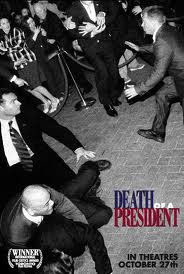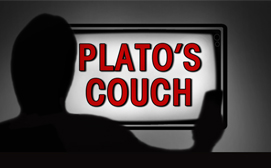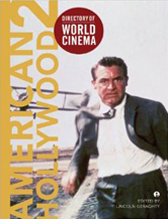
REVIEW: Death of a President
The latest in a string of ‘political’ films released in Australia over the past month (see Home of the Brave), Death of a President is unquestionably the most provocative so far. Set in Chicago in October 2007, amongst a growing chorus of dissent and protest, President Bush, is gunned down following a meeting with business leaders. If that premise alone sounds like controversial territory, then the film’s form renders it doubly so. Combining actual footage with staged interviews and some cleverly orchestrated digitally altered footage, director Gabriel Range’s film represents an innovative tilt on the ‘documentary’ genre.
 Neither mockumentary nor docu-drama, Range’s work may not be ‘real’ in the traditional documentary sense but its pseudo-fictionality is underlined by a prevailing ‘truthfulness’ nonetheless. The performances of the interviewees aim for naturalism rather than parody or irony (as in Series 7), and the effect is an interesting subversion of the reality principle. When suspect Casey Claybon (M. Neko Parham) a returned serviceman from Iraq gets choked up recalling his experiences in the Gulf, the sense of grief and frustration is entirely palpable. But our sympathies are not directed in such a one-sided manner. Similar affective responses are provoked by members of Bush’s staff and secret service team, which lends the film and interesting dynamic and refutes potential accusations of bias, or of treating the assassination simplistically.
Neither mockumentary nor docu-drama, Range’s work may not be ‘real’ in the traditional documentary sense but its pseudo-fictionality is underlined by a prevailing ‘truthfulness’ nonetheless. The performances of the interviewees aim for naturalism rather than parody or irony (as in Series 7), and the effect is an interesting subversion of the reality principle. When suspect Casey Claybon (M. Neko Parham) a returned serviceman from Iraq gets choked up recalling his experiences in the Gulf, the sense of grief and frustration is entirely palpable. But our sympathies are not directed in such a one-sided manner. Similar affective responses are provoked by members of Bush’s staff and secret service team, which lends the film and interesting dynamic and refutes potential accusations of bias, or of treating the assassination simplistically.
However, it is in the aftermath of the shooting that the film is centrally concerned. In the wake of Bush’s death, the expansion of government authority through surveillance, racial profiling, restriction of civil rights, media censorship, spin doctoring, and the corruption of evidence bespeaks not so much a potential future, but a present that is already upon. Watching the film in light of the highly questionable David Hicks trial, it’s hard not to succumb to a prevailing feeling of cynicism when it comes to political justice and free speech. Whatever ideological intentions Death of a President has – and its motives aren’t entirely didactic – its critique of violence as both a form of resistance, and as a vehicle for political power is an important one. Moreover, the very fact that the film has found a distributor and made its way through production testifies to the possibilities of free speech, however limited at present. And for that we should all be grateful to British based Film Four.





RSS feed for comments on this post. TrackBack URI